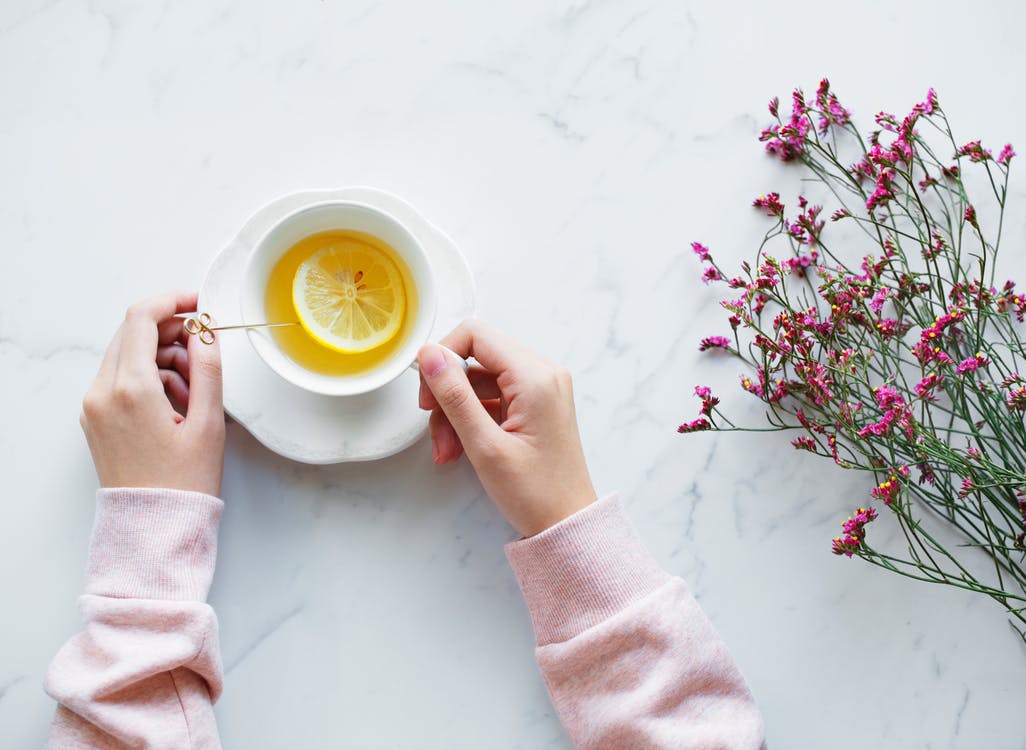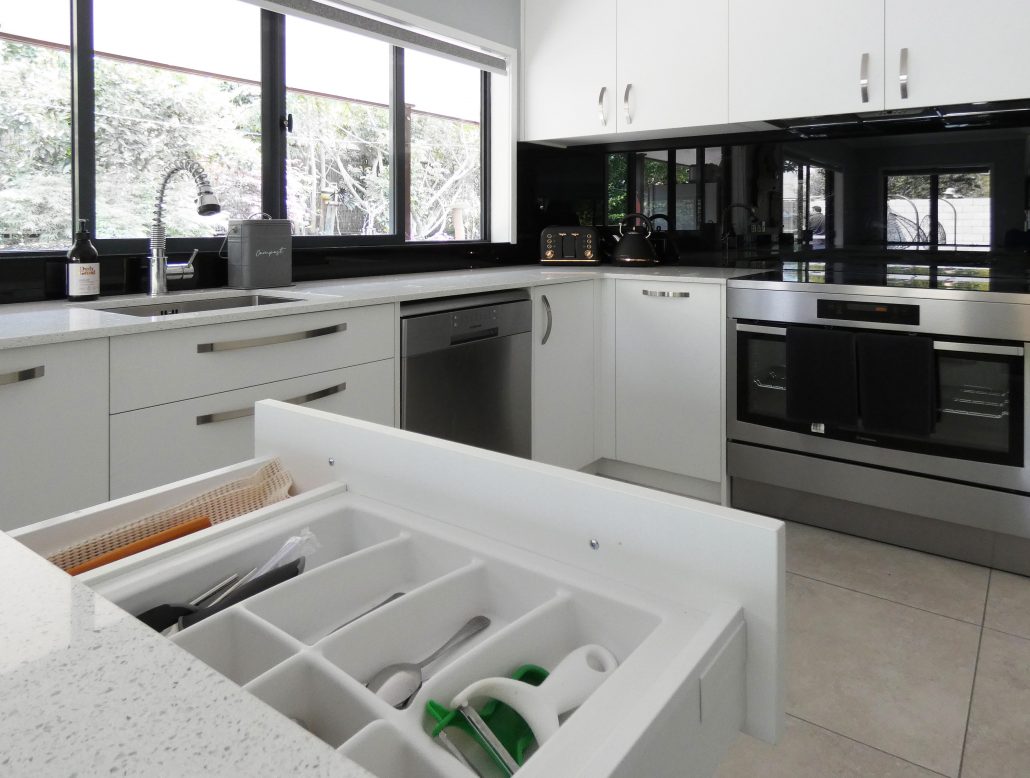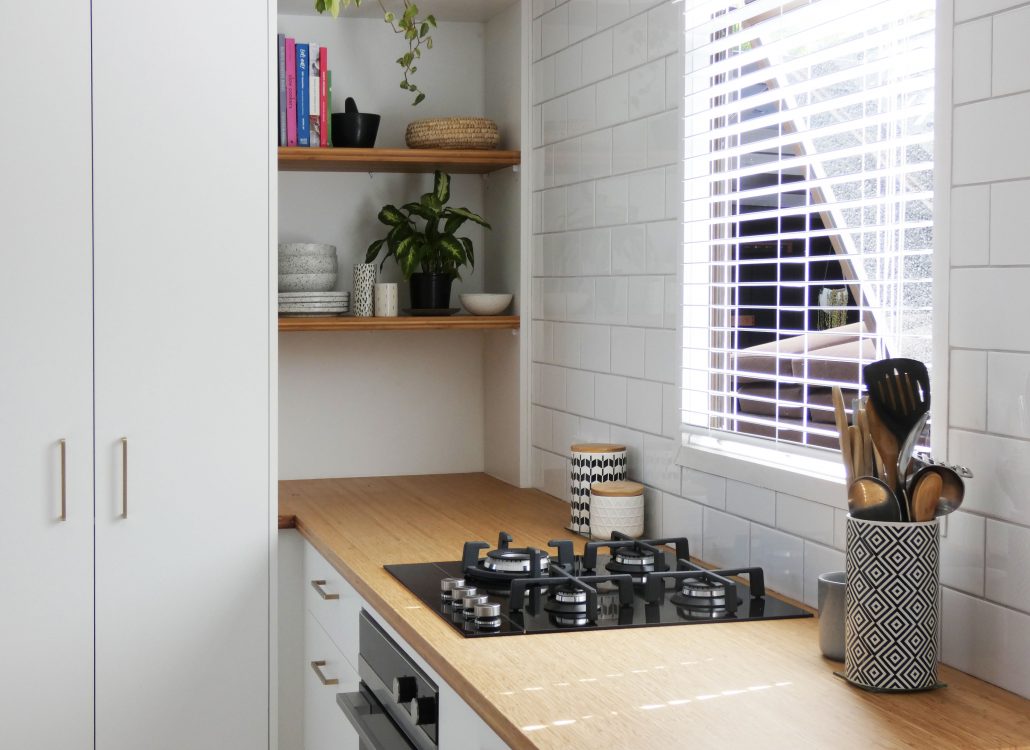We all want to keep our beautiful bench-tops in great condition but what is the best way to clean these and keep them looking brand new? Don’t be sucked in to buying hundreds of cleaning detergents – most of these have nasty chemicals in them that can cause more harm than good. We have easy, affordable ways for each different type of stone to suit your needs.
Caring For Your Uniquartz Benchtop
Uniquartz surfaces are virtually maintenance-free. There is no need for polishing, sealing or reconditioning. Light dusting followed by cleaning with warm soapy water is enough to restore the shine to the bench-tops. However, make sure not to use any abrasives or harsh chemicals on the bench-tops.
Caring for your CaesarStone Benchtop
To clean CaesarStone, we recommend using warm water and a mild detergent or quality spray and wipe type cleaner. Virtually maintenance free, CaesarStone’s hard, non-porous surfaces require no sealing to renew the luster and are simple to clean. In most cases, soap and water or a mild detergent is enough to keep your CaesarStone countertop looking like new. If necessary, use a non-abrasive soft soap along with a Norwex microfiber cloth. Afterwards, thoroughly rinse with clean water to remove residue.
For stubborn stains or dried spills, apply a non-abrasive household cleaner and rinse to remove residue. To remove adhered material such as food, gum, nail polish or even dried paint, first scrape away excess material with a plastic putty knife and then use a damp cloth to remove any marks or residual dirt.
Like all stone material, Caesarstone can be damaged by sudden and rapid temperature changes. Therefore, we suggest that hot pots and pans never be directly placed on the surface. We also recommend a rubber pot mat which you can purchase from Kmart or a trivet which can also be purchased from Kmart, be placed on the surface under cooking units such as electric frying pans, crock pots, or roaster ovens.
Caesarstone is highly scratch resistant, however avoid abuse of the surface by refraining from using sharp objects such as sharp knives or screw drivers directly onto the surface.
It’s important to be aware that like any other surface, Caesarstone can be permanently damaged if exposed to strong chemicals and solvents that can damage its physical properties. Never clean your CaesarStone surface with products that contain Trichloroethane or Methylene chloride, such as paint removers or strippers. Avoid the use of highly aggressive cleaning agents such as oven/grill cleaners and dishwasher polishing agents that have high alkaline/pH levels (pH 8.5 or higher). Products containing oils or powders may leave a residue and should be rinsed off thoroughly. Should your surface accidentally be exposed to any of these damaging products, rinse immediately with clean water to neutralize the effect.
Caring for your Silestone Benchtop
it is recommended that you wipe up food and liquid spills as soon as possible. For everyday routine cleaning, you can use warm soapy water (containing a mild detergent) and a damp cloth.
Before the use of any cleaning product outside of the above option, please check that the product does not contain trichloroethane, methylene chloride or high levels of alkaline/pH. Should the surface be accidentally exposed to any of these damaging products, rinse immediately with water to neutralize the effect.
We do not recommend placing hot pots, pans, and oven trays directly from the hotplate or out of an oven onto the surface. We always recommend the use of a rubber pot mat or trivet to place hot items onto. Prolonged direct contact with, or radiated heat, from very hot pots can cause thermal shock, discoloration or damage.
Engineered Stone, like all stone, is like glass. And like a glass table top, if you hit the edge with something hard with enough force, you can damage the edge. So, take care around the sink when washing cast iron pans etc. Also take care loading and unloading the dishwasher. If an accident occurs, it can be repaired by a trained technician. The repair will be just that, not a complete fix meaning that you may notice the repair.
Caring For Your Granite Benchtops
The most important facet of understanding your granite bench-tops is that it’s a porous material. Any natural stone has the characteristics and must be understood to ensure the beauty of the stone. Porous simply means it can be penetrated by water, oils, grease, and chemicals. Your bench-top will be coated with a non-toxic sealer upon installation, to resist all types of stains. You ideally should be getting it resealed every 12-18 months in which your general hardware shop should have a spray on one that you can easily do yourself.
It is important to clean all spills and keep unwrapped foods from being on the tops for extended periods of time as the oils and minerals can eventually work thought the sealer and can stain your top. Under normal conditions this is never a problem. An example of a potential problem would be to leave for a holiday with a grease spot on the granite surface.
The best aspect of granite is the resistance it has too heat. You have the freedom to take hot dishes directly out of the oven and place it on the granite without fear of damaging your bench-tops.
Regular Maintenance & Cleaning
If your granite darkens when it is wet, do not be alarmed. It will return to its original colour when the water evaporates. The safest way to clean your granite tops is to use products designed specifically for stone. Cleaners and disinfectants of this type are neutral on the acid scale, so they pose no risk of hurting the polish. Dish-washing liquid and water will work to clean your tops, as will spray on cleaners such as window cleaners. Avoid anything that contains bleach or any wipe or cleaners that have grit in them. If you want to avoid water streaking while cleaning, you must wipe your tops until they are completely dry. If lime build up occurs around your faucet do not use lime removal products. Gently scraping the lime off with a straight razor is the best solution.
Avoiding Scratches
Granite is a quartz based and can therefore be scratched by quartz or anything harder. Knives will not scratch granite, although cutting on your bench-tops is not recommended as your knives will dull very quickly. Diamonds will scratch granite – removal of diamond rings before cooking is recommended. Certain stoneware dishes contain rough silica sand and pose a risk of scratching. Some pizza-stones will scratch granite if they are spun around while cutting the pizza.
Avoiding Chips
Chips in granite are not a common occurrence. When they do happen, chips are most often caused by banging something into the edge of the bench-top. Heavy pots and pans and the bottoms of large bottles do most of the damage. Take care when you handle them around your granite. If a chip does occur and you find the piece that chipped out, save it. Most of the time it can be epoxied back into place.
Do’s and Don’ts for Granite:
- Do clean surfaces with mild detergent, stone soap or specialty cleaner, with a soft clean cloth.
- Do rinse surfaces thoroughly after cleaning them dry, with a soft clean cloth.
- Do blot up spills with a paper towel immediately.
- Don’t use vinegar, lemon or other cleaners such as bathroom, grout or tile, and tub cleaners.
- Don’t use cleaners containing abrasives.
https://www.kmart.co.nz/product/grid-trivet—matte-black/1124400 – Trivets




